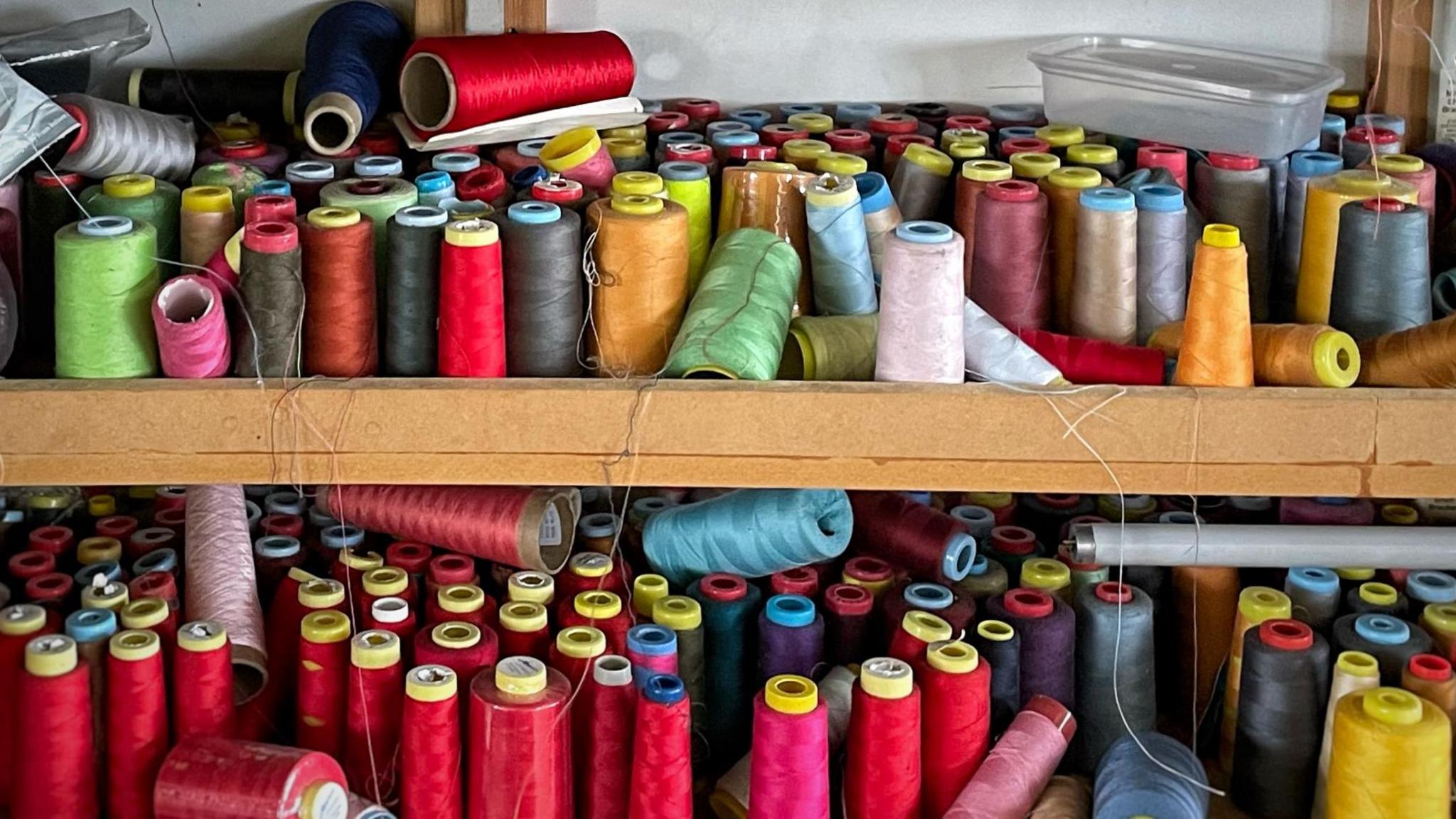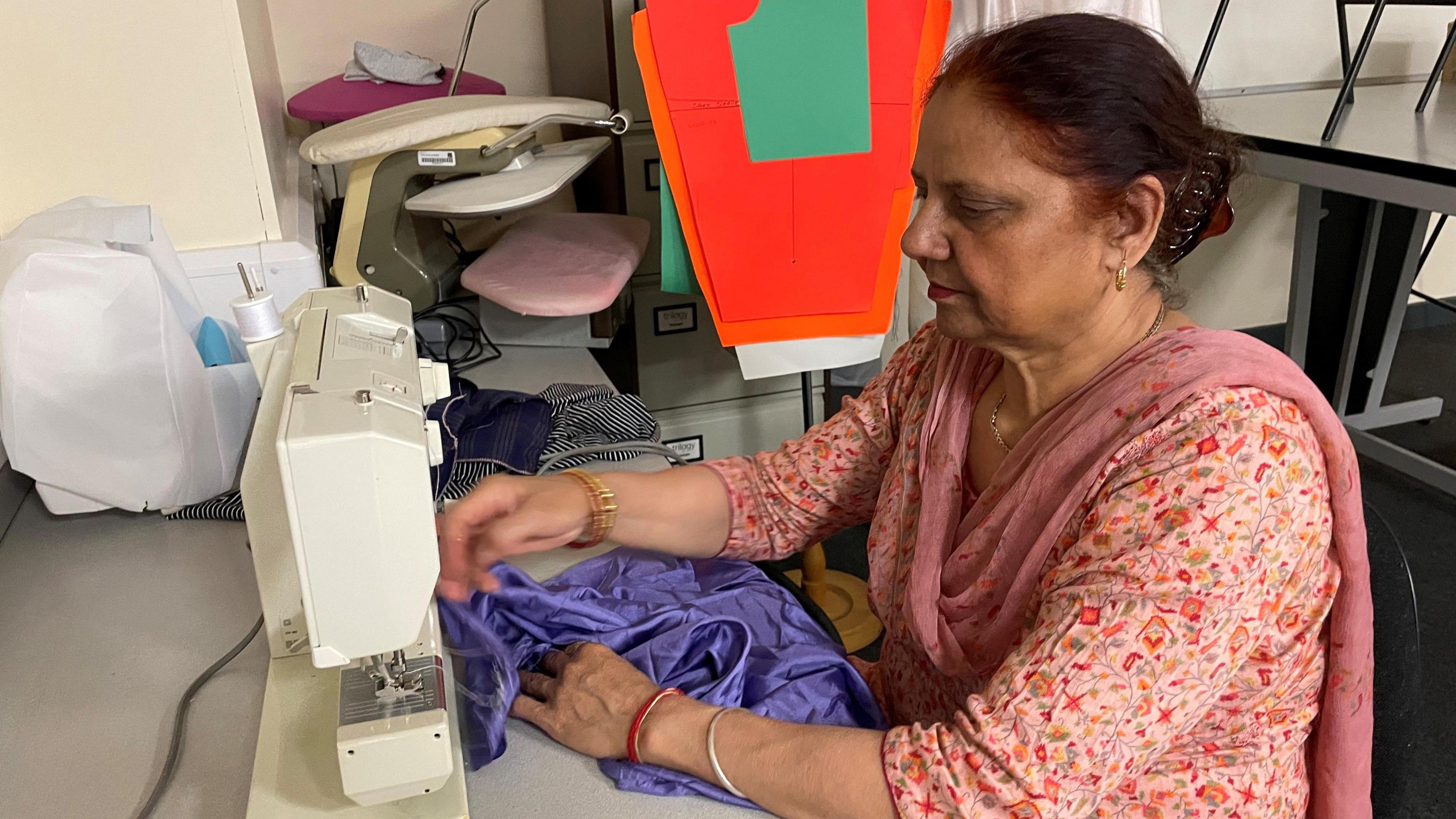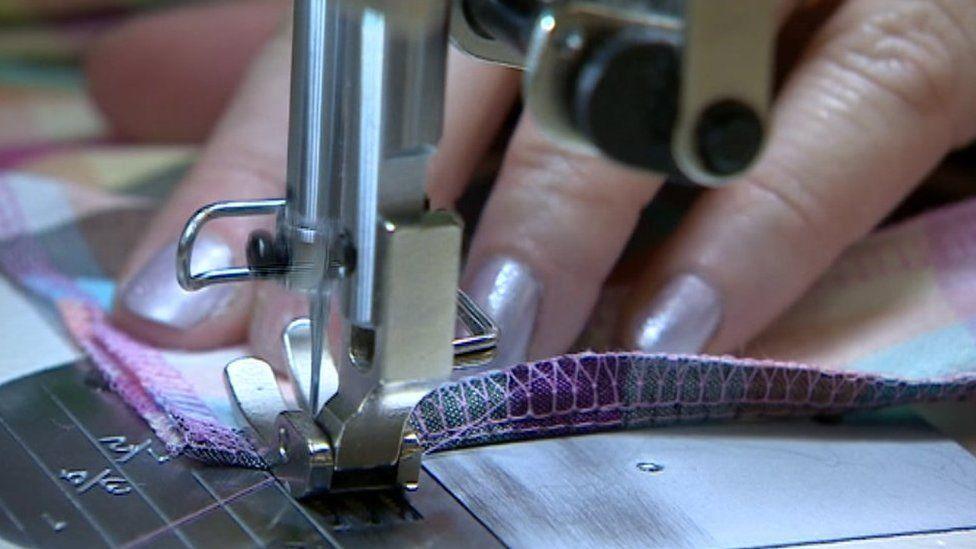More than 1,200 textile workers illegally underpaid

HM Revenue & Customs (HMRC) identified National Minimum Wage arrears for 1,268 garment workers in Leicester
- Published
More than 1,200 garment workers in Leicester were illegally underpaid over the last five years, figures obtained by the BBC have revealed.
The significant wage exploitation has been found in figures released by HM Revenue & Customs (HMRC), covering the past five financial years from 2019-20 to 2023-24.
A total of £177,678 in National Minimum Wage arrears for workers were identified, with penalties of £338,504 issued to textile companies in the same time period.
The BBC's freedom of information (FOI) request also revealed that none of the employers responsible for the underpayments had received criminal convictions.
The figures come after damning headlines about Leicester's garment supply chain during the pandemic.
Earlier this year, several workers from India told the BBC they accepted between £3 and £5 an hour because they struggled to find work and could not speak English.
Sewing machine operator Paramjit Kaur said some employers covered their tracks by creating a paper trail, which appeared to show she earned the National Living Wage.
"They would show 'full pay' on the payslip but once the money was in my bank, I was told to return it," she said.
"I used to give it back in cash. Three or four factories used to do this."
When asked why she returned the money, the 61-year-old said: "It felt dirty and bad but I needed to work. No-one was paying more."

Paramjit Kaur says she accepted as little as £3 an hour
Ms Kaur was supported by the Fashion-workers Advice Bureau Leicester (FAB-L), which has been backed and funded by several retail brands.
FAB-L said it had helped about 90 workers recover unpaid wages informally, by persuading garment businesses to pay to avoid complaints to the brands they supplied.
But the BBC's FOI has revealed details of formal investigations into minimum wage compliance in the textile industry.
HMRC said it had opened 171 cases in Leicester - between April 2019 and April 2024 - which formed the bulk of 255 cases across the UK textile industry.
The tax authority added it had identified more than £390,000 in wage arrears for more than 2,000 workers nationally.
'Further action'
The campaign group Labour Behind the Label described the new figures as "significant" and "deeply concerning", but not surprising.
Kaenat Issufo, from the group, said the underpayment of Leicester textile workers showed there were continuing systemic challenges.
Ms Issufo called for more sustainable, ethical practices that prioritise workers' rights.
"I hope this encourages further action from both policymakers and industry leaders to make Leicester's garment sector a model of integrity and fairness," she said.

Most of the HMRC investigations began between 2020 and 2022
HMRC said it had already recovered more than 60% of the unpaid wages it identified nationally, and was using civil powers to recover outstanding pay.
That includes taking action to stop employers liquidating their businesses to avoid paying workers.
When asked what happens if a company responsible for wage arrears goes bust, a HMRC spokesperson said: "HMRC will engage with the official receiver and register the debt, making sure that any workers owed money are recognised as creditors.
"Where HMRC has evidence that directors of limited companies have broken NMW [National Minimum Wage] law and/or acted inappropriately to avoid their obligations, we may make referrals to the Insolvency Service and seek director disqualifications."
Most of the HMRC investigations began between April 2020 and April 2022.
Its FOI response confirmed there had been no convictions related to wage arrears, with HMRC adding prosecutions were reserved for the most serious cases of non-compliance, because it can cause delays and does not guarantee workers will be paid.
Meanwhile, the government has announced plans to set up a Fair Work Agency as part of its Employment Rights Bill, external.
Follow BBC Leicester on Facebook, external, on X, external, or on Instagram, external. Send your story ideas to eastmidsnews@bbc.co.uk, external or via WhatsApp, external on 0808 100 2210.
Related topics
- Published17 September 2024
